Dr Matthew Hobbs is lead author on a new research paper

A recent international study led by Dr Matthew Hobbs, Senior Lecturer and Co-Director of the GeoHealth Laboratory in the Geospatial Research Institute at Te Whare Wānanga o Waitaha | University of Canterbury (UC), sought to throw some light on these underlying factors. Joining him in the endeavour were UK researchers from the University of Essex, […]
How much habitat is enough?
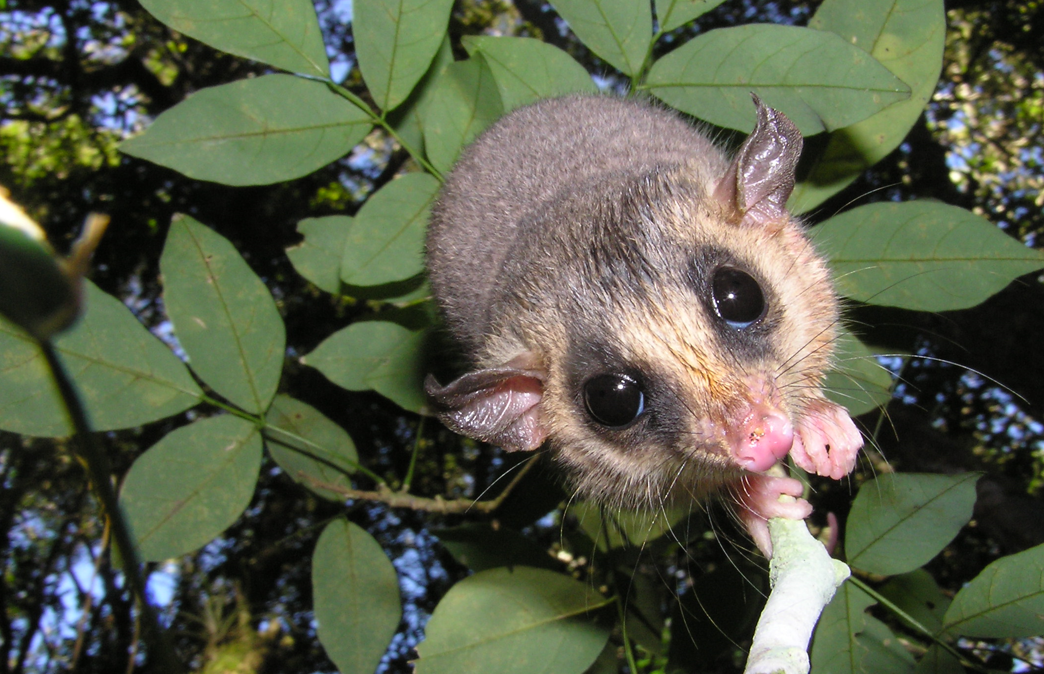
In this seminar, Dr Cristina Banks-Leite will talk about ecological thresholds as a was to estimate the minimum amount of habitat required to preserve biodiversity, and how the position of thresholds changes across biomes world-wide.
The GRI Director, Prof Matthew Wilson awarded with one of four IIT-Delhi Fellowships
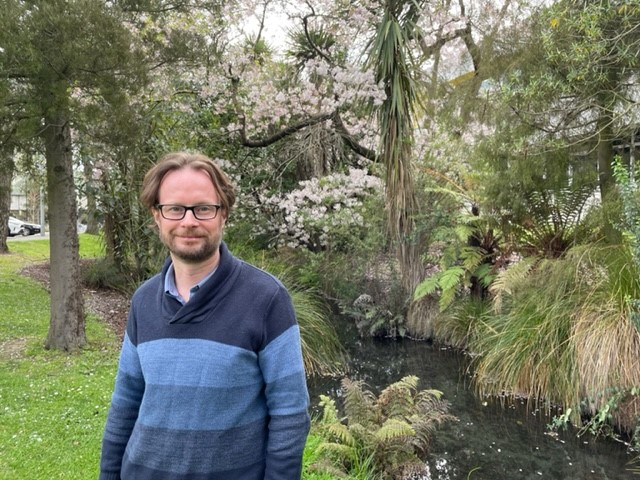
Te Whare Wānanga of Waitaha | University of Canterbury (UC) academics have been awarded two of four inaugural IIT-Delhi India-New Zealand Centre Fellowships. For more information go to: https://www.canterbury.ac.nz/news-and-events/news/2024/iit-delhi-fellowships-awarded-to-university-of-canterbury-resear Congratulations Matt!
Radio localisation: Understanding insect behaviour, busting sport cheats and studying climate change.

In this seminar, Dr Graeme Woodward will be introducing some of the work at UC’s Wireless Research Centre.
Word Cloud of GRI’s Published Journal Articles
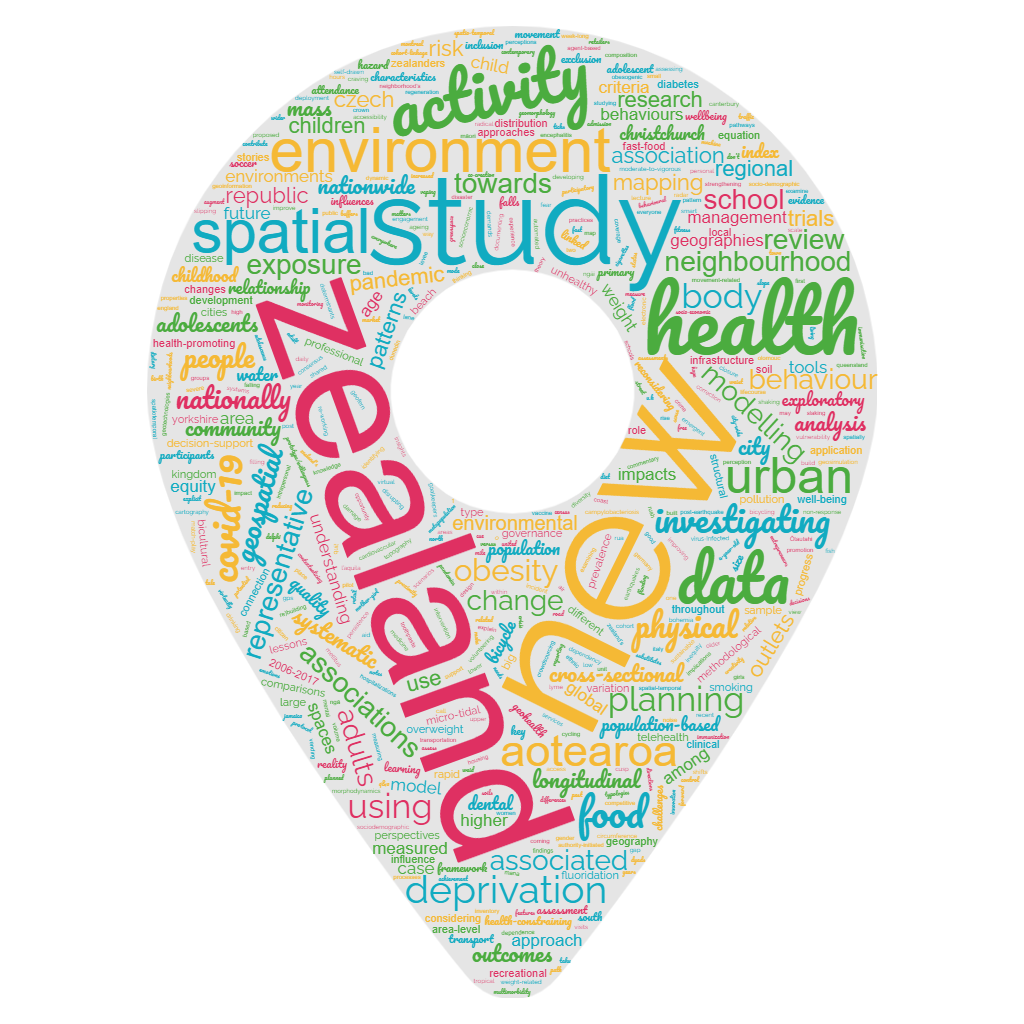
Curious what the Geospatial Research Institute is writing about? Here’s a word cloud based on 104 published journal titles.
Andrew Kindom – PhD student took the 1st place at the HRSC Emerging Researcher Awards 2023
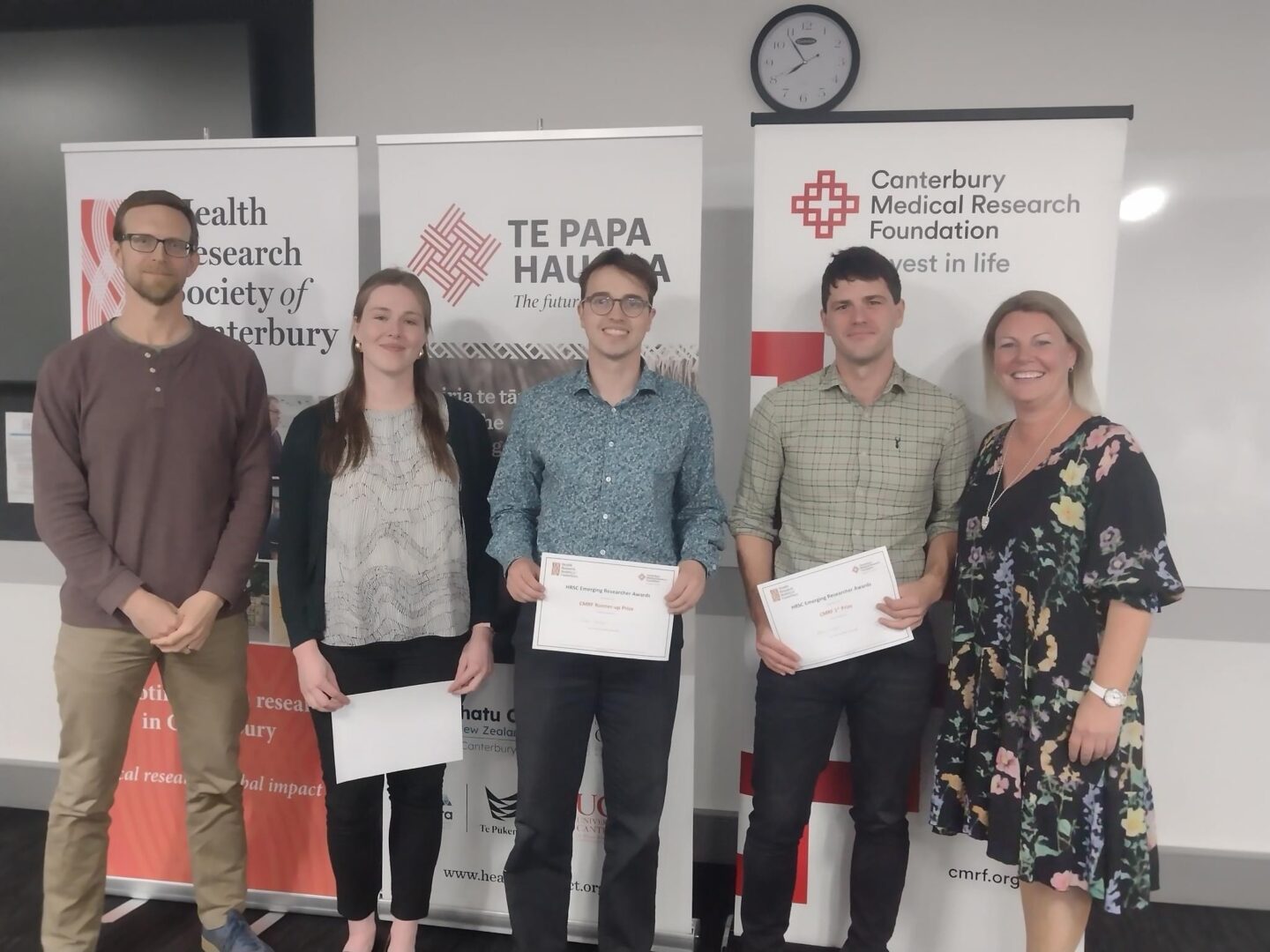
On Thursday 26th October, Te Papa Hauora hosted the Health Research Society of Canterbury’s 2023 Emerging Researcher Awards Evening. Andrew Kindom was awarded with the 1st prize, presenting: A geospatial analysis of Abdominal Aortic Aneurysms (AAA) ruptures to guide screening in NZ. Andrew is currently a PhD student at the University of Canterbury – Faculty […]
Geospatial Research in Industry
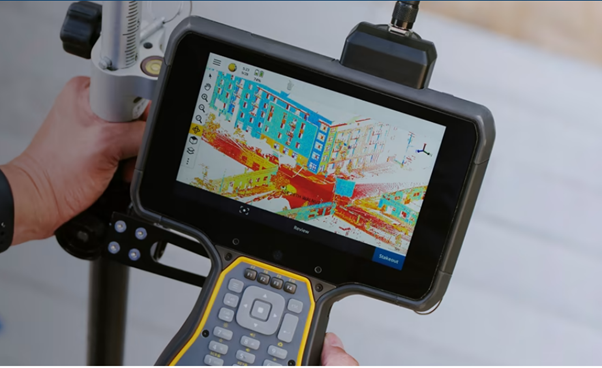
In this seminar, Peter Shaw will be giving an overview of areas of interest at Trimble, particularly, their ongoing pursuit of increased accuracy, reliability, and efficiency in positioning techniques (including mitigation against space weather/ionospheric effects) and the application of AI to Geospatial problems.
Earth Science in an Age of Change
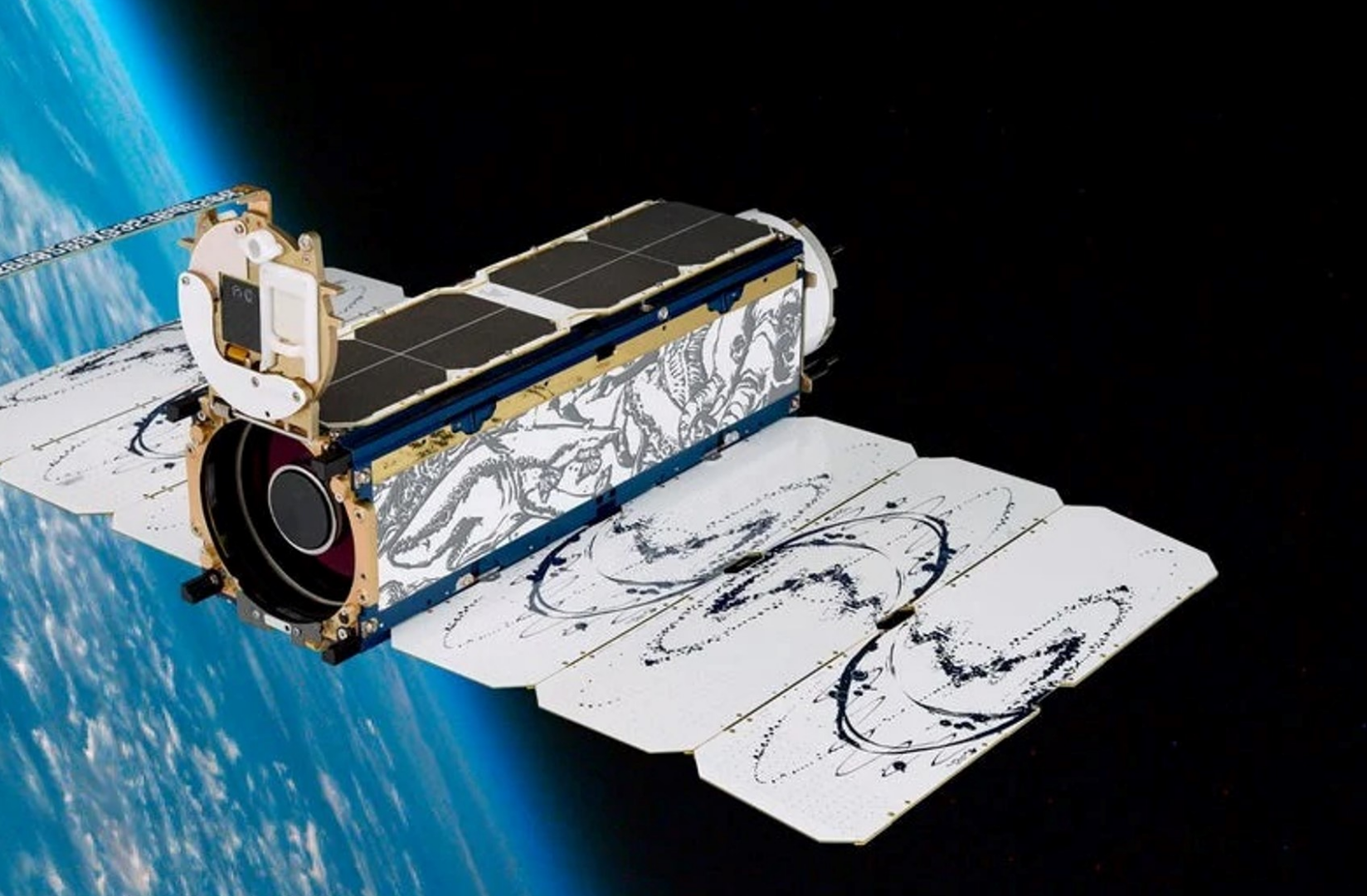
Planet (a public benefit corporation) is imaging the land surface of the Earth on a near-daily basis, with multispectral sensors at ~3.7m per pixel we operate the largest fleet of earth observation satellites in history with a constellation of 19 high-resolution SkySats, capable of 0.5m multispectral imaging. e change, terrestrial an aquatic ecosystems, wildlife biology and agriculture.
Video recording available at:
https://www.youtube.com/watch?v=Dv37CHZct2o&list=PLJymSfBIuEWKYLJbi6LzyiRXKtAQBbcH3&index=7&t=15s
Penguins from Space: Using satellite imagery to monitor emperor penguins in their struggle against a warming Antarctica.
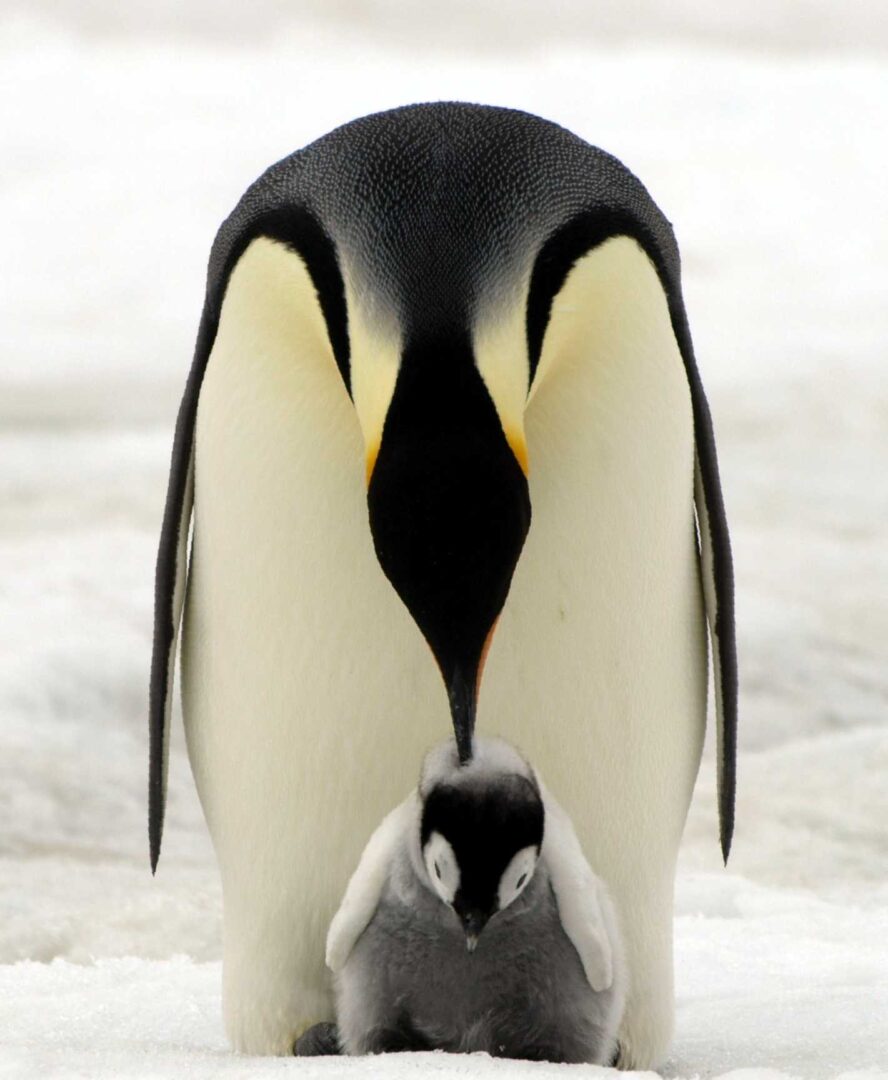
In Antarctica emperor penguins are the species most at risk from climate change. Up until a decade ago our understanding of the species was hindered by the logistical challenges of studying a species which lives in one of the harshest places on earth. But since then advances in our use of satellite imagery has enabled us to find, count and monitor the birds, transforming it from one of the least studied species in Antarctica to one of the best.
Using nationwide geospatial data to build a comprehensive understanding of public water supply, quality and inequity in New Zealand

Reliable supply of safe drinking water is vital for human health. Despite this, there is no consistent nationwide spatial dataset of water distribution zones (WDZ) for Aotearoa New Zealand (A-NZ). In this talk, we will outline the development of a nationwide geospatial dataset of WDZ using data compiled from the 67 district and city councils in A-NZ. We will also outline several early use cases for the WDZ dataset.
